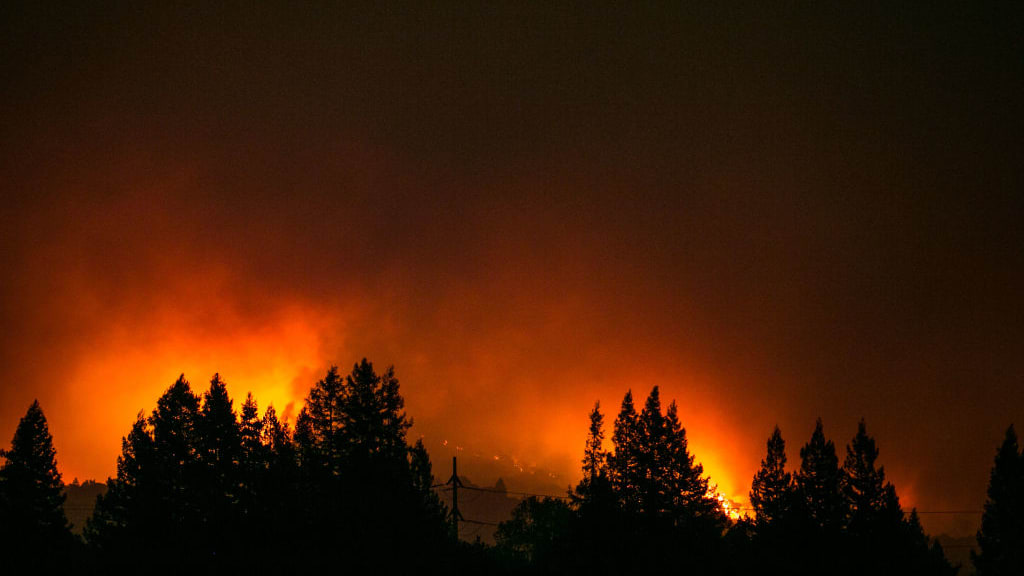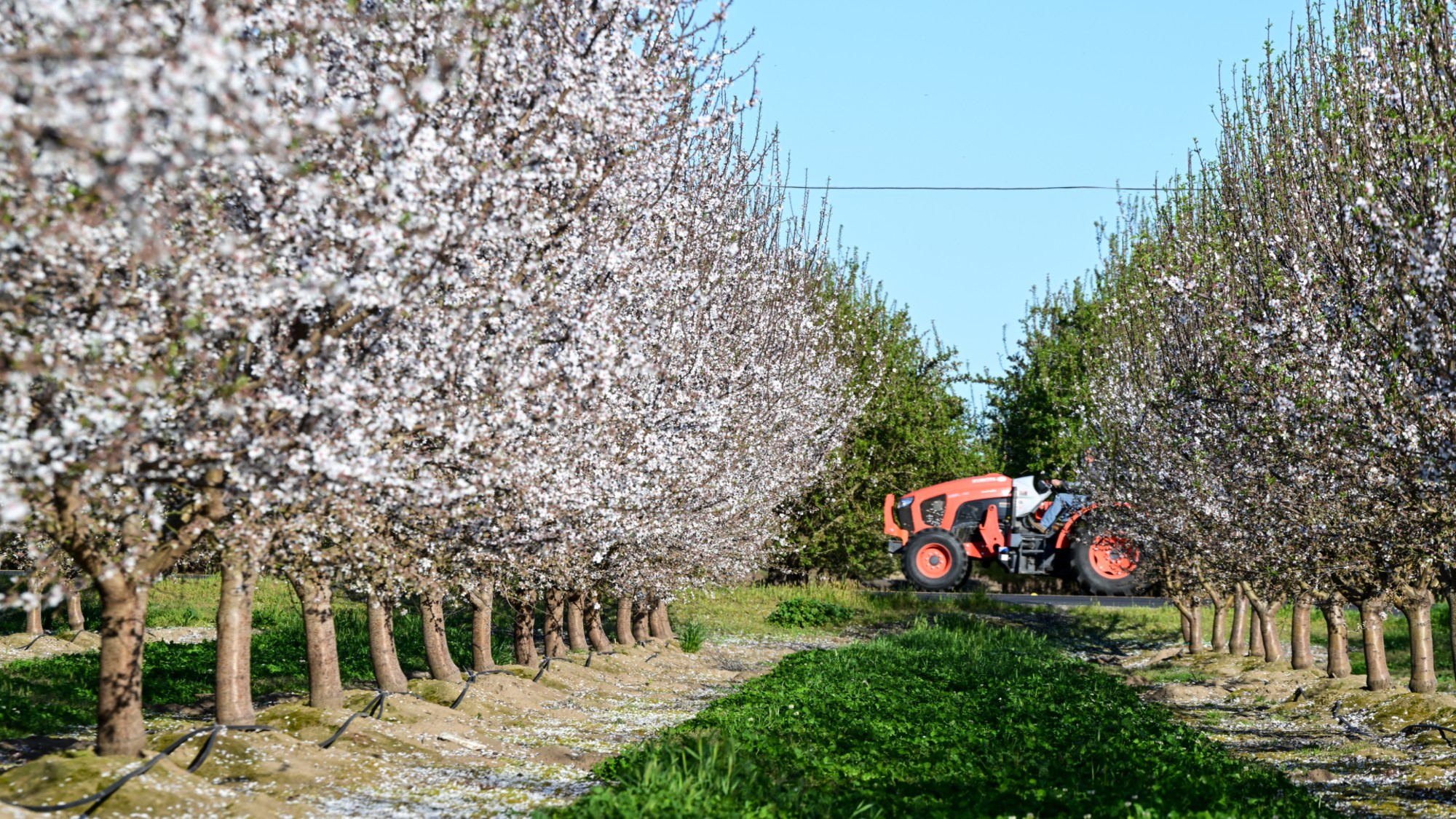How wildfires are gentrifying California


A free daily email with the biggest news stories of the day – and the best features from TheWeek.com
You are now subscribed
Your newsletter sign-up was successful
California's housing market has struggled since the Tubbs Fire in October 2017, which not only marked the start of the state's "mega-fire era," as described by The Washington Post, but also kicked off a broader problem of fire-driven gentrification.
Because many of those affected by the 2017 fires lacked decent insurance or funds to repair their homes, they were forced to leave the areas in which they had always lived. But those who remained tended to be wealthier, "a trend helping remake and re-sort communities across the state by rich and poor," the Post writes. In fact, California "homebuyers paid a 46 percent premium to live in homes with a high wildfire risk compared to homes with a low wildfire risk" in 2022, USA Today reports.
"Disaster of every kind is increasing inequality in this state," commented Chris Coursey, who was mayor of Sonoma County, California, at the time of the Tubbs Fire. "It's not a theory. It's happening right in front of our eyes, to our neighbors and friends."
The Week
Escape your echo chamber. Get the facts behind the news, plus analysis from multiple perspectives.

Sign up for The Week's Free Newsletters
From our morning news briefing to a weekly Good News Newsletter, get the best of The Week delivered directly to your inbox.
From our morning news briefing to a weekly Good News Newsletter, get the best of The Week delivered directly to your inbox.
California Gov. Gavin Newsom (D) hopes to expand affordable housing in the state by building 2.5 million new homes and apartments by 2030, about half of which should be affordable to the middle class. But growing climate disasters are making that goal more difficult to reach. Research by the nonprofit group First Street Foundation found that the number of homes at risk of wildfires in California is expected to increase by six times in the next 30 years.
"I have yet to see a community become less expensive after a fire," remarked Jennifer Gray Thompson, co-founder and chief executive of the nonprofit After the Fire. "And my answer to those asking that question about whether those whose homes burned should be allowed to rebuild was always the same ... Just point out what underpass you would like these people to live under."
A free daily email with the biggest news stories of the day – and the best features from TheWeek.com
Devika Rao has worked as a staff writer at The Week since 2022, covering science, the environment, climate and business. She previously worked as a policy associate for a nonprofit organization advocating for environmental action from a business perspective.
-
 Why is the Trump administration talking about ‘Western civilization’?
Why is the Trump administration talking about ‘Western civilization’?Talking Points Rubio says Europe, US bonded by religion and ancestry
-
 Quentin Deranque: a student’s death energizes the French far right
Quentin Deranque: a student’s death energizes the French far rightIN THE SPOTLIGHT Reactions to the violent killing of an ultraconservative activist offer a glimpse at the culture wars roiling France ahead of next year’s elections
-
 Secured vs. unsecured loans: how do they differ and which is better?
Secured vs. unsecured loans: how do they differ and which is better?the explainer They are distinguished by the level of risk and the inclusion of collateral
-
 Blue Origin launches Mars probes in NASA debut
Blue Origin launches Mars probes in NASA debutSpeed Read The New Glenn rocket is carrying small twin spacecraft toward Mars as part of NASA’s Escapade mission
-
 Dinosaurs were thriving before asteroid, study finds
Dinosaurs were thriving before asteroid, study findsSpeed Read The dinosaurs would not have gone extinct if not for the asteroid
-
 SpaceX breaks Starship losing streak in 10th test
SpaceX breaks Starship losing streak in 10th testspeed read The Starship rocket's test flight was largely successful, deploying eight dummy satellites during its hour in space
-
 A rat infestation is spelling trouble for the almond industry
A rat infestation is spelling trouble for the almond industryThe Explainer The infestation has affected at least 100,000 acres in California
-
 Rabbits with 'horns' sighted across Colorado
Rabbits with 'horns' sighted across Coloradospeed read These creatures are infected with the 'mostly harmless' Shope papilloma virus
-
 Lithium shows promise in Alzheimer's study
Lithium shows promise in Alzheimer's studySpeed Read Potential new treatments could use small amounts of the common metal
-
 Scientists discover cause of massive sea star die-off
Scientists discover cause of massive sea star die-offSpeed Read A bacteria related to cholera has been found responsible for the deaths of more than 5 billion sea stars
-
 'Thriving' ecosystem found 30,000 feet undersea
'Thriving' ecosystem found 30,000 feet underseaSpeed Read Researchers discovered communities of creatures living in frigid, pitch-black waters under high pressure
